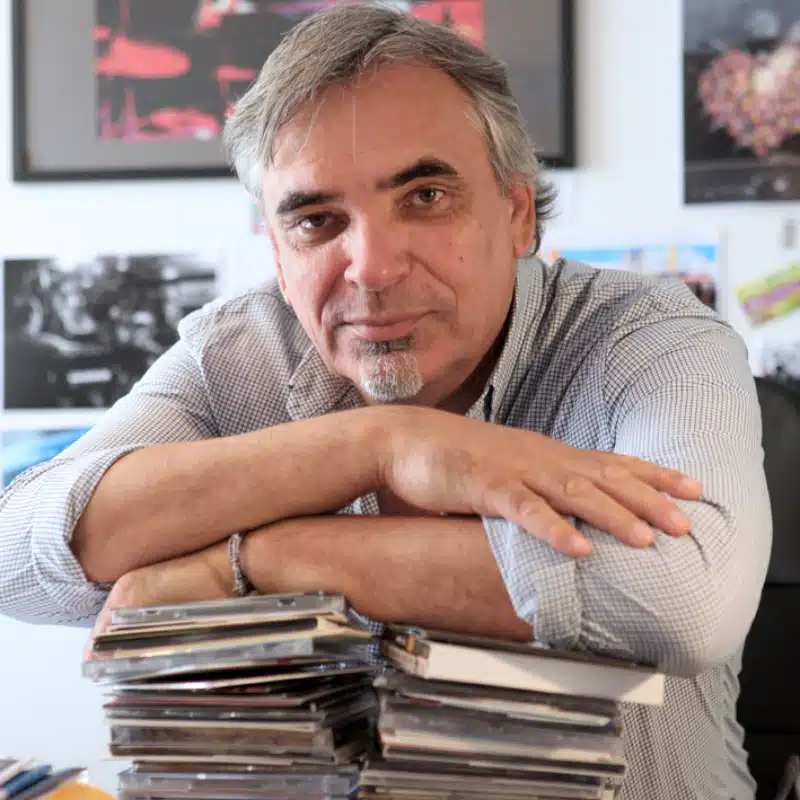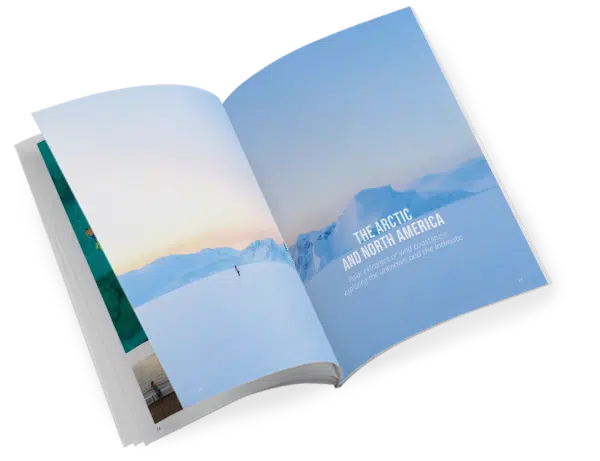When jazz sets out to sea
Hughes Kieffer, who has been the director of the Marseille Jazz des cinq continents festival since 2016, is driven by a desire to create the unexpected in order to bring artists and audiences together. In autumn 2025, this philosophy will nourish the minds and senses of passengers during two exceptional PONANT voyages.
How would you define the festival’s artistic line?
We’ve been following the same line for 25 years, ever since the festival was founded in 2000. It is concerned by how historically, jazz has been nourished by an incredible cultural mix. In essence, jazz is the music of improvisation, and it offers musicians limitless freedom of expression. And as a programmer, what I’m looking for is the convergence between the artist’s self-expression, spontaneous and sublime, and the desire to share that on stage, among musicians, but also of course with the audience. For me, the question of how artists and audiences encounter one another has become absolutely essential. It is this festival’s raison d’être.
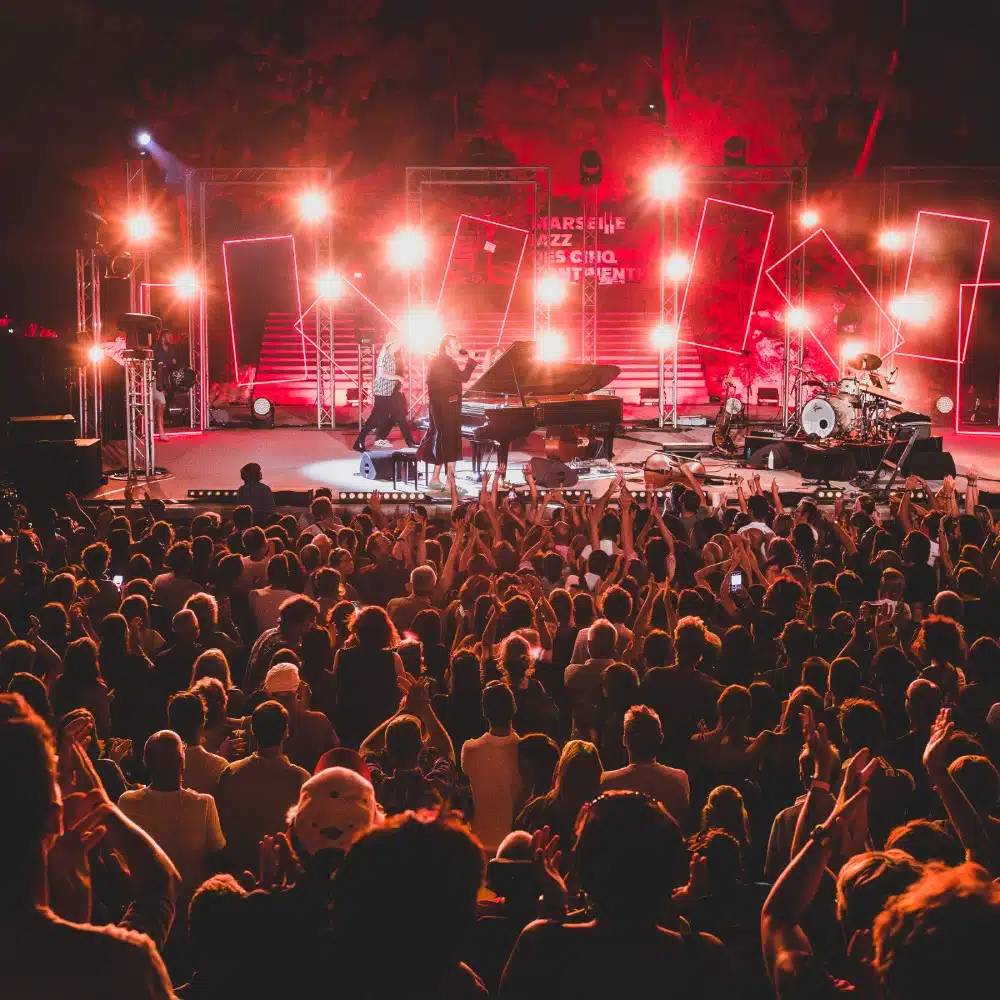
Which artists have informed your vision for the programme?
It was my parents who first played me jazz. Duke Ellington, Charlie Parker, Louis Armstrong, Sarah Vaughan… all the greats! Then one day I came across Keith Jarrett’s The Köln Concert. A solo piano masterpiece. This album really taught me what jazz was all about. It was a revelation to me. Then came my second encounter with Keith Jarrett, this time as part of a trio. And while he introduced me to introspection and individual experimentation, his trio showed me what interaction in jazz is all about, listening to others, and the dialogue between musicians. This freedom of ‘movement’ between artists, between musical colours, is what excites me about jazz and inspires the festival’s programming.
What do you think makes jazz so fascinating?
Quite simply, I’m one of those people who believe that jazz can save the world! Its ability to bring together artists and genres, sometimes polar opposites, to bring together audiences and generations. How many times have we heard that jazz is dead? And each time, it has managed to make a comeback. Jazz is dead, long live jazz! This music is profoundly alive and it adapts, evolves and feeds off all modes of expression and all cultures. Latin, African, European… In a way, jazz can “save” the world, by spreading this unifying, universal and peaceful spirit. A peace that is active, dynamic, constantly on the move, capable of soothing conflicts.
How do you communicate this spirit to the public?
Jazz is not elitist music. It’s music that belongs to everyone. And that’s what the Marseille Jazz des cinq continents and festivals in general are all about: not imposing barriers, going off the beaten track, setting up in unexpected venues, to reach out to all kinds of audiences. Just like our concert at Friche la Belle de Mai. A hybrid, multi-disciplinary venue in Marseilles that focuses on alternative performance. This concert brought together and mixed two audiences: the audience of the jazz festival and that of La Friche. This was a great success for us and for the artists.
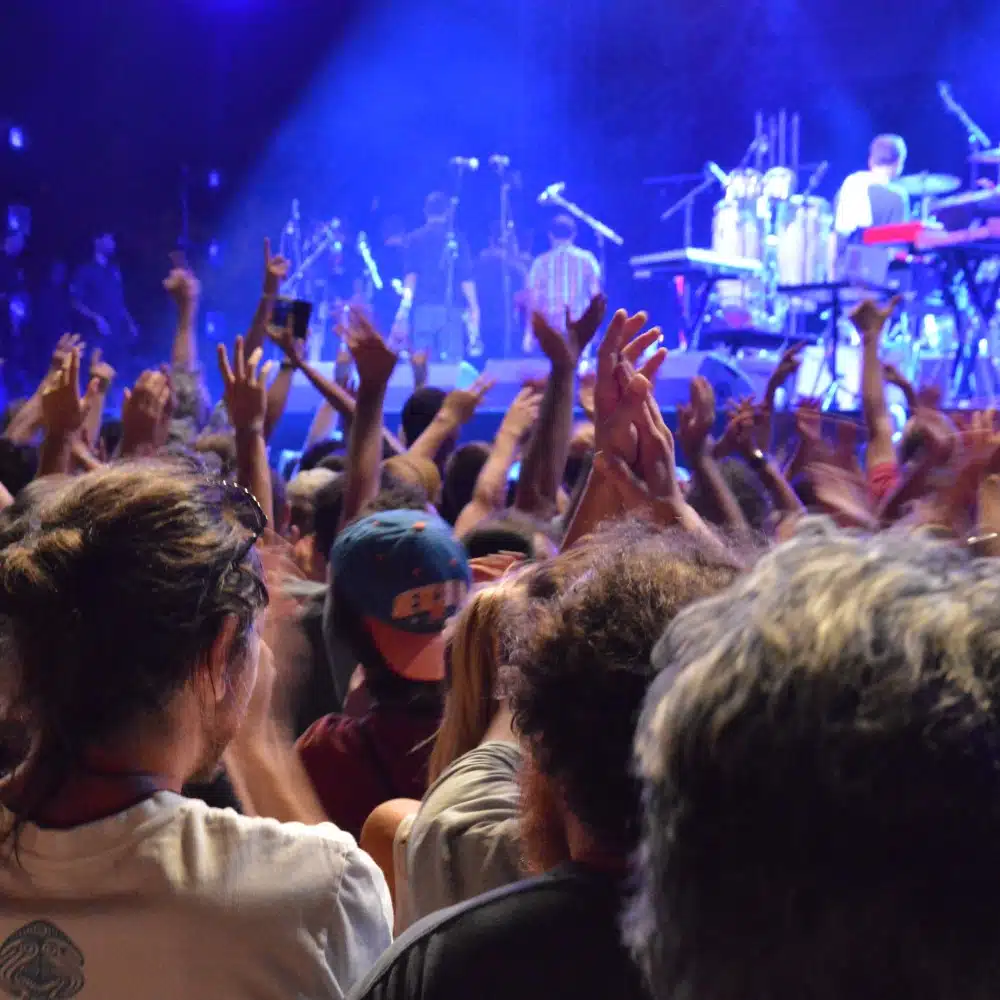
What other highlights stand out in recent years?
A much more intimate memory. It was at the Théâtre Silvain, a green amphitheatre in Marseille’s 7th arrondissement. We had scheduled a concert by Chilly Gonzales. And as he was playing the piano alone, he suddenly saw swallows flying to and fro around him. And then the artist began to improvise as the birds flew by. And the audience was treated to this incredible dialogue between the swallows and the pianist. It’s one of those special moments when the artist, in osmosis with the audience, lets go and confidently goes beyond their limits and offers something extra. It’s almost spiritual. It’s not just about the music, it’s not just about the festival, it’s not just about Marseille. We’re somewhere else.
Going somewhere else… What do the festival and PONANT have in common?
At first, I wasn’t necessarily convinced by the idea of bringing jazz on board a boat. I had my doubts about the listening conditions in particular. And then I boarded a PONANT ship and I was won over! I have come to appreciate the company’s commitment to making every journey an experience of the highest quality, where listening to and talking with passengers is essential. I realised that we could organise a real seagoing festival on board, with the opportunity for exceptional interactions between musicians and passengers on a daily basis. The emotions aroused by the landscapes are combined with those of the music, like a sort of fusion between two journeys.
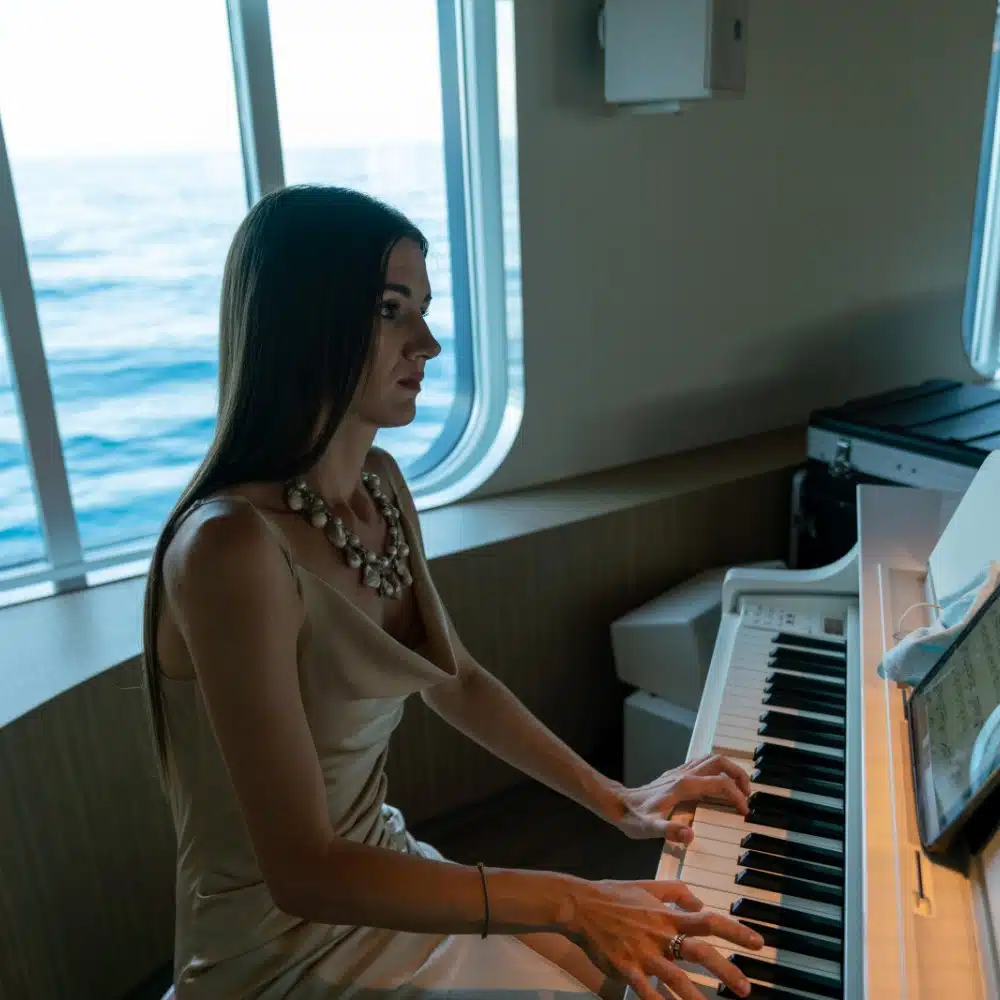
What will these on-board exchanges between artists and passengers be like?
On land, as part of the festival, the relationship between the audience and the artists is at the heart of my concerns. This is even more the case on a ship. The artists will have a marked influence on the passengers’ feelings; but at the same time the passengers, by virtue of their proximity to the artists, may also have a role to play in the musicians’ emotions and therefore in their music. We can also imagine impromptu moments between artists and passengers. Like attending rehearsals, taking part in workshops, listening to musicians talk about their work and their inspirations… We can look forward to some special moments.
What journeys through jazz have you imagined with PONANT?
Two musical itineraries are planned. One in the Aegean Sea, departing from Athens. We’ll be sailing to the rhythm of a ‘music and cinema’ theme. The music will become the soundtrack to the adventure.
The other will take us across the Atlantic to discover Canadian jazz, starting in Montreal, a stronghold of contemporary jazz. Jazz steeped in the folk music of the Arctic peoples. Then we’ll head south to the heart of American jazz. From Boston and its famous Berklee College of Music, from which some of today’s greatest jazz musicians have emerged, to New York, the leading edge of world jazz. There will be an opportunity to listen to a few sessions in clubs and to visit the house of Louis Armstrong, whose legacy remains priceless. A wonderful adventure through jazz, time and space!

Photos credits: © VK92 et Clara Lafuente ; ©iStock
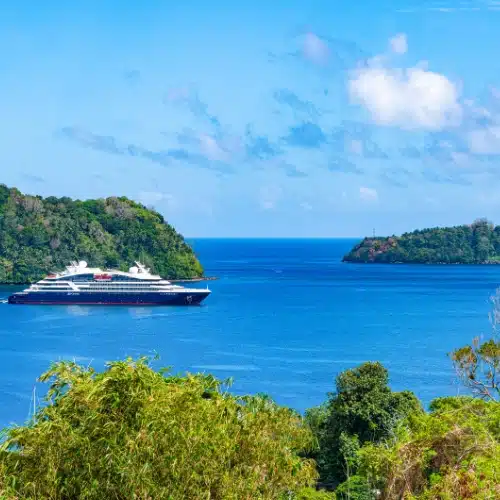
Explore the world in musical style with PONANT
Sail in the company of talented artists

